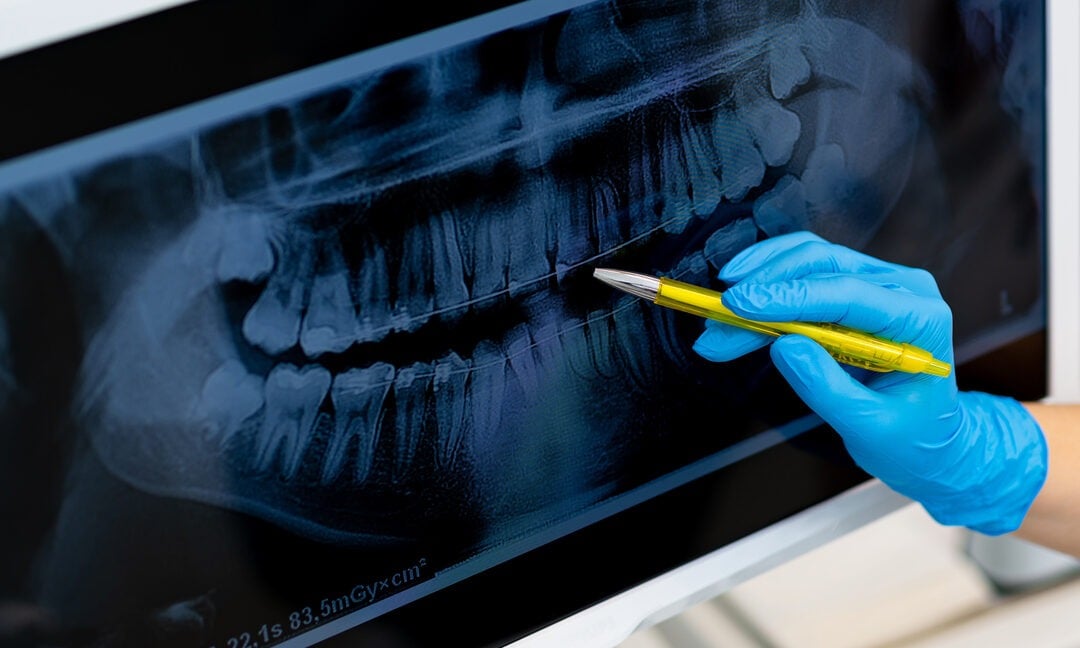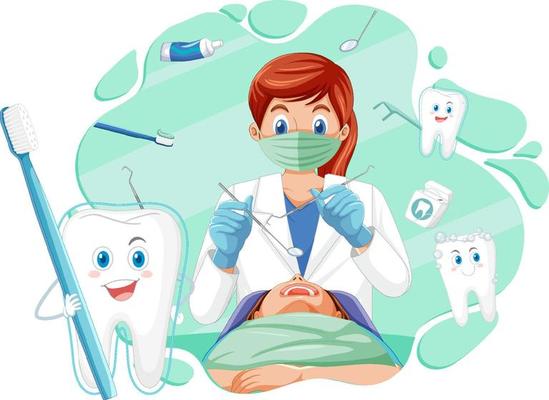Economical Dental Care Options from Leading Dentists Eugene
Economical Dental Care Options from Leading Dentists Eugene
Blog Article
A Guide to Usual Oral Conditions That Need a Dentist's Treatment
Understanding the variety of oral conditions that require specialist treatment is vital for preserving optimum dental health. Toothaches, as an example, can be symptomatic of serious problems such as tooth cavities, split teeth, or abscesses, each needing certain interventions like dental fillings or root canals. Gum illness, from the early phases of gingivitis to much more severe periodontitis, emphasizes the importance of routine dental check-ups and cleansings. Impacted wisdom teeth and jaw problems can introduce considerable discomfort and complications. Making certain prompt visits to the dental professional can minimize these issues successfully, but what specifically are the indicators and therapies entailed?
Toothaches
Toothaches are a common oral problem that can vary from moderate pain to extreme pain, often indicating a hidden concern that needs expert attention. This discomfort can originate from a selection of resources, consisting of dental tooth cavities, broken or fractured teeth, and dental abscesses. Each of these problems poses significant dangers if left neglected, potentially resulting in much more serious issues.
Oral cavities, additionally recognized as cavities, are created by the buildup of plaque that wears down tooth enamel, leading to openings or pits in the influenced teeth. Abscesses are unpleasant infections at the origin of a tooth or between the gum and a tooth, usually resulting from serious decay or without treatment cavities.
Effective treatment of toothaches includes resolving the root cause. This may include fillings for cavities, crowns for broken teeth, or root canals and antibiotics for abscesses. Early treatment by an oral expert can protect against further wear and tear and ease pain, ensuring optimal oral health.
Gum Tissue Condition
Gum tissue disease, a prevalent yet commonly overlooked oral condition, shows up via swelling and infection of the gums and sustaining cells. If left neglected, gingivitis can proceed to periodontitis, a much more severe form characterized by the devastation of the sustaining bone and connective cells, eventually leading to tooth loss.
The key cause of gum illness is bacterial plaque, a sticky, anemic film that continuously forms on teeth. Poor oral health, smoking cigarettes, genetic predisposition, and specific clinical conditions, such as diabetic issues, can worsen the danger of developing gum disease. Routine dental exams are important for very early discovery and administration of this problem.
Treatment for gum tissue condition varies from professional dental cleansing and scaling to even more advanced treatments like origin planing and gum surgery, depending upon the extent. Maintaining good dental health methods, consisting of cleaning two times daily, flossing, and utilizing an antiseptic mouthwash, can substantially minimize the threat of gum illness and promote much healthier periodontals.
Tooth Cavities
Tooth cavities, also referred to as tooth decays, are a common dental problem defined by the devastation of tooth enamel as a result of acid-producing microorganisms in the mouth. These microorganisms grow on sugars and starches from food and beverages, generating acids that gradually deteriorate the enamel, causing cavity development.
Early-stage tooth cavities might not show signs, however as they proceed, they can trigger toothache, level of sensitivity to warm or cool, visible holes or pits in the teeth, and staining. If left without treatment, tooth cavities can penetrate deeper layers of the tooth, potentially causing serious discomfort, infection, and also missing teeth.
Stopping tooth cavities involves a combination of excellent oral health practices and Read Full Report dietary routines. Regular cleaning with fluoride tooth paste, flossing, and routine oral check-ups are essential. Dental practitioners may likewise suggest extra preventative procedures, such as fluoride therapies and dental sealers, to secure teeth from decay.
Minor tooth cavities can be resolved with oral fillings, which bring back the tooth's framework. Much more sophisticated cases might call for crowns or also origin canal therapy if the degeneration has actually reached the tooth's pulp.

Impacted Knowledge Teeth
Affected wisdom teeth are a common dental problem that occurs when the 3rd molars, frequently described as knowledge teeth, fail to totally emerge or line up appropriately within the mouth. This problem typically results from inadequate area in the jaw or an abnormal development angle of the teeth. Affected knowledge teeth can cause a selection of issues, including discomfort, infection, and damages to surrounding teeth.
When wisdom teeth become affected, they are often partly appeared or continue to be totally below the periodontal line. This partial eruption can develop a path for bacteria to enter the gums, causing infections that show up as swelling, pain, and even high temperature. In addition, impacted wisdom teeth can apply pressure on neighboring teeth, potentially triggering crowding or shifting.
A comprehensive oral evaluation, usually including X-rays, is vital for detecting impacted wisdom teeth. Regular dental examinations are suggested to keep an eye on the problem and keep dental health and wellness.
Jaw Conditions
Jaw problems, collectively understood as temporomandibular joint (TMJ) disorders, encompass a variety of problems that impact the jaw joint and surrounding muscular tissues. These disorders can manifest via symptoms such as discomfort or tenderness in the jaw, problem eating, a clicking or standing out audio when closing the mouth or opening, and also persistent headaches. TMJ problems can emerge from different elements, consisting of joint inflammation, jaw injury, or regular behaviors like teeth grinding or jaw clenching.
Medical diagnosis of TMJ problems commonly includes a thorough assessment by a dentist, including a physical assessment of the jaw, oral X-rays, and in some cases progressed imaging strategies like MRI or CT checks to analyze the joint's condition. Non-invasive i was reading this techniques such as physical treatment, dental splints, and drugs intended at decreasing inflammation and pain are often first-line therapies.
Very early intervention by an oral specialist is vital to avoid the development of TMJ disorders and to keep total dental health. Clients experiencing consistent jaw discomfort or disorder ought to seek timely examination and treatment.
Verdict
Keeping oral health and wellness demands prompt professional care to address typical dental conditions. Toothaches often suggest underlying issues such as cavities, broken teeth, or abscesses, calling for prompt treatment. Periodontal illness, from gingivitis to periodontitis, demands regular oral examinations and cleansings to avoid development. Impacted knowledge teeth try these out and jaw disorders also require expert interest to relieve discomfort and protect against additional issues. Normal dental check outs are essential for detecting and treating these conditions, making certain general dental health and wellness and wellness.
Dental dental caries, also understood as cavities, are triggered by the accumulation of plaque that wears down tooth enamel, leading to holes or pits in the affected teeth. Abscesses are uncomfortable infections at the origin of a tooth or in between the periodontal and a tooth, typically resulting from extreme degeneration or unattended dental caries.

Additionally, impacted wisdom teeth can exert stress on surrounding teeth, possibly causing crowding or changing.
Report this page